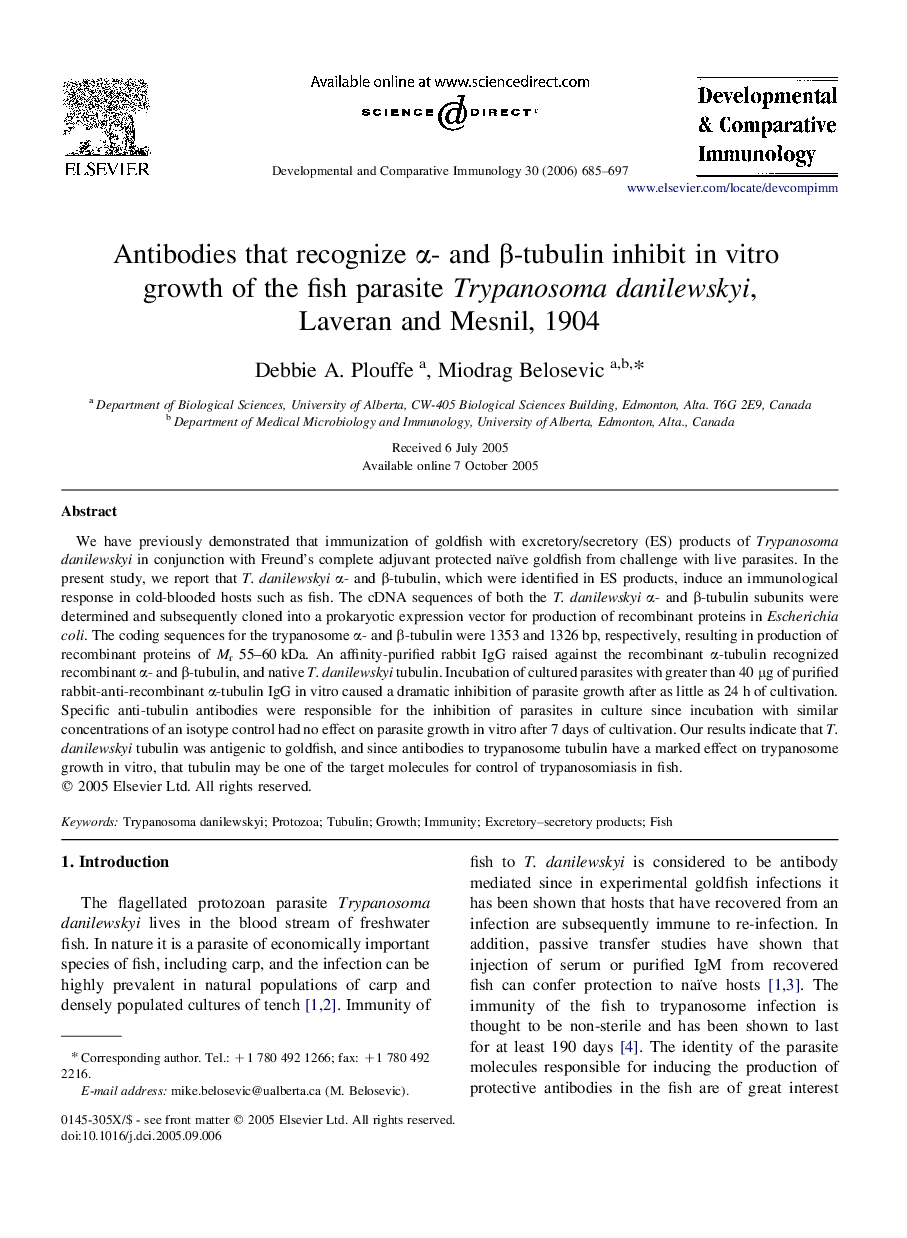| Article ID | Journal | Published Year | Pages | File Type |
|---|---|---|---|---|
| 2430497 | Developmental & Comparative Immunology | 2006 | 13 Pages |
We have previously demonstrated that immunization of goldfish with excretory/secretory (ES) products of Trypanosoma danilewskyi in conjunction with Freund's complete adjuvant protected naïve goldfish from challenge with live parasites. In the present study, we report that T. danilewskyi α- and β-tubulin, which were identified in ES products, induce an immunological response in cold-blooded hosts such as fish. The cDNA sequences of both the T. danilewskyi α- and β-tubulin subunits were determined and subsequently cloned into a prokaryotic expression vector for production of recombinant proteins in Escherichia coli. The coding sequences for the trypanosome α- and β-tubulin were 1353 and 1326 bp, respectively, resulting in production of recombinant proteins of Mr 55–60 kDa. An affinity-purified rabbit IgG raised against the recombinant α-tubulin recognized recombinant α- and β-tubulin, and native T. danilewskyi tubulin. Incubation of cultured parasites with greater than 40 μg of purified rabbit-anti-recombinant α-tubulin IgG in vitro caused a dramatic inhibition of parasite growth after as little as 24 h of cultivation. Specific anti-tubulin antibodies were responsible for the inhibition of parasites in culture since incubation with similar concentrations of an isotype control had no effect on parasite growth in vitro after 7 days of cultivation. Our results indicate that T. danilewskyi tubulin was antigenic to goldfish, and since antibodies to trypanosome tubulin have a marked effect on trypanosome growth in vitro, that tubulin may be one of the target molecules for control of trypanosomiasis in fish.
